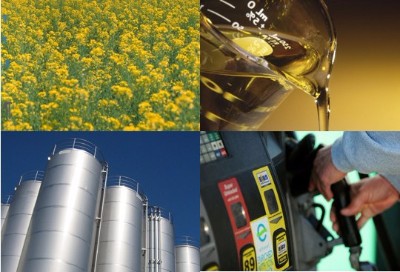
To access the News Reviews, subscribe to our Information Package free of charge here.
Foreword
Across different modes of transport a range of biofuels are becoming established as an alternative to fossil fuels. There are several factors determining the suitability of a particular biofuel to a specific use. Drop-in Biofuels are often a preferable option as market uptake is simplified by minimizing the requirements to upgrade vehicles and infrastructure. It is also important that biofuels are available at a quantity and cost which makes it competitive to any fuels currently on the market. Safety of fuel handling, energy density and the location of fuel availability are also key considerations for transport fuels particularly where refuelling may be required across a wide area.
In Spain, Maersk, Renfe and Cepsa are testing the use of second generation renewable diesel as drop-in fuels on the rail network between Algeciras and Madrid. The renewable diesel will be used to...
Other news this month includes:
Policy
- UK fuel policy expands to include recycled carbon fuels and nuclear derived fuels for transport
- France makes pledge on SAF
Markets
- SAF handling terminal to be built on Teesside
- Aviation council publishes SAF Book and Claim Guidance
- More...
Research and Development
- F1 aims for net zero carbon by 2030
- OXCCU spin-out gets funding to produce SAF from CO2
Bioethanol
- EU renewable ethanol industry hits records level for emission reduction
- USDA to support higher ethanol blends
Biodiesel
- 2G bio-fuel test for Spanish rail
- Argent fuels announces biodiesel partnership with bus operator, Transdev
- More...
Aviation and Shipping Biofuel
- Greenergy to produce SAF at new Teesside plant
- Trollhättan-Vänersborg Airport to use Neste SAF on all flights
- More...
Other Biofuels
- Gasum opens Norwegian bio-LNG station
- Estonia to continue using biomethane for buses beyond 2030
Price Information
Events